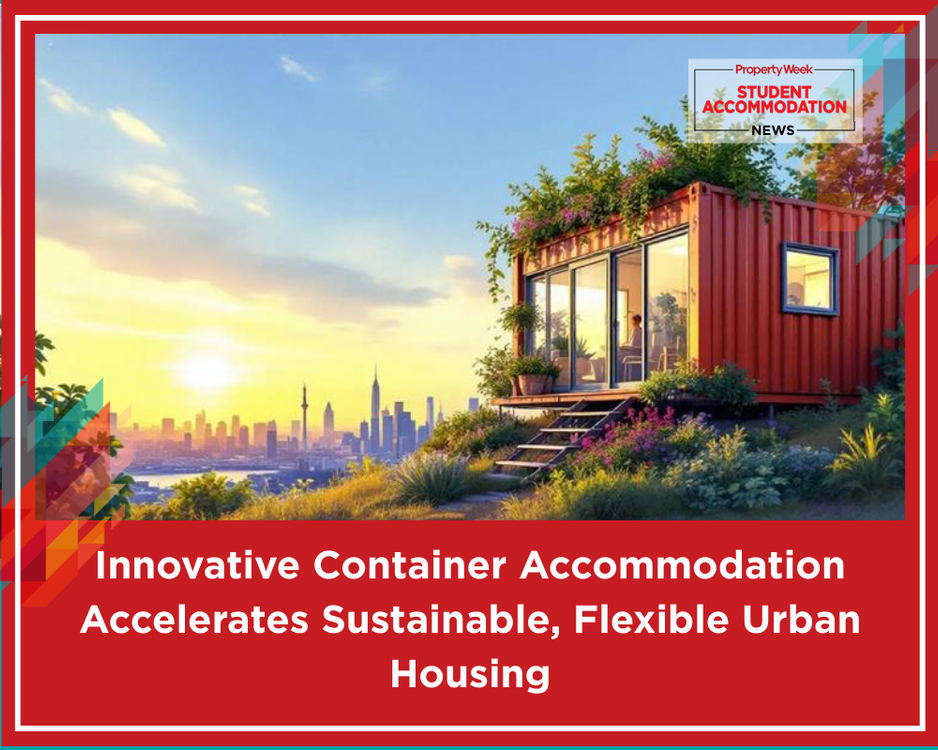
Innovative Container Accommodation Accelerates Sustainable, Flexible Urban Housing
From rapid deployment to eco-friendly design, container accommodation is transforming modern construction with versatile, scalable solutions tailored to global needs and emerging urban demands.
Container accommodation represents an innovative approach in modern construction, utilising modified shipping containers to create housing and workspace units that are both practical and sustainable. These prefabricated modules provide versatile environments suitable for a broad range of applications, from residential homes and student dormitories to offices, emergency shelters, and boutique hotels. Their appeal lies in the speed of assembly, cost-effectiveness, durability, and environmental benefits compared to traditional building methods.
A primary advantage of container accommodation is the rapid construction and deployment timeline. Prefabricated units can be delivered and installed on-site within weeks, a stark contrast to the months or even years required for conventional buildings. Their modular nature not only mitigates delays caused by weather or labour shortages but also allows for scalability, with units easily stacked or combined to meet specific spatial needs. Economic benefits stem from the reuse of existing steel containers and factory prefabrication, which reduces raw material consumption and labour costs, making these solutions more affordable. Additionally, the steel containers’ original design for global shipping ensures structural integrity and resilience against harsh weather and heavy loads, contributing to safe and durable living or working environments.
Environmental sustainability is another significant factor in the rise of container accommodation. By repurposing steel containers, these structures support waste reduction and sustainability goals. Many projects integrate energy-efficient systems such as insulation, solar panels, and smart energy management technologies. This eco-friendly approach aligns well with global efforts to build greener, more sustainable communities. Industry reports highlight how modular container architecture is particularly valuable in disaster relief and emergency response scenarios, where rapid deployment can provide immediate shelter, clinics, or mobile offices to affected populations.
Container accommodation also offers considerable design flexibility. Advanced engineering reinforces structural integrity where windows and doors are added, while insulation materials like sandwich panels and rock wool help maintain thermal comfort. Ventilation and natural lighting are enhanced through skylights and wide windows, improving liveability. Utilities including plumbing, wiring, and air conditioning are integrated to meet contemporary comfort standards. Moreover, the mobility of container units—allowing for dismantling, relocation, and reassembly—caters to transient needs in remote industrial projects or mobile offices, reflecting the increasing demand for adaptable living and working spaces in a world where remote work and climate preparedness are becoming more prominent.
Applications of container accommodation span various sectors globally. In Africa, mining companies often face housing challenges for workers in remote areas, turning to air-conditioned dormitories and communal facilities made from containers that can be relocated as projects conclude. European universities have adopted modular container housing to meet the demand for affordable student accommodation, offering compact yet comfortable spaces. In Asia, governments leverage container-based units as temporary shelters following natural disasters like earthquakes and floods, capitalising on their rapid deployability. The hospitality sector is also embracing this trend, with container hotels providing unique, eco-friendly stays that showcase innovative design possibilities and mobility.
Despite the clear benefits, there are challenges to container accommodation. One of the most noted is thermal regulation—without proper insulation, containers can overheat in hot climates, affecting occupant comfort. Aesthetic considerations also come into play, as some view container housing as less attractive compared to traditional architecture. Regulatory compliance presents another hurdle, with building codes and zoning laws restricting container house use in certain regions. The longevity of containers depends on adequate maintenance and anti-corrosion treatments, as steel structures can degrade over time if neglected. Nonetheless, these issues are increasingly mitigated through creative architectural solutions, advanced materials, and adherence to local building standards.
Looking ahead, innovations in container accommodation promise to enhance its functionality and appeal further. Smart technologies integrating lighting, energy management, and security systems are making these structures more efficient and comfortable. Hybrid construction methods are broadening design possibilities, combining containers with other modular systems for customised solutions tailored to cultural and lifestyle needs. The principles of the circular economy are embedded in the reuse of materials and incorporation of renewable energy systems, advancing the sustainability credentials of container accommodation.
In conclusion, container accommodation has transitioned from a niche, temporary housing option to a mainstream construction method with diverse global applications. Its affordability, adaptability, and eco-conscious design make it an attractive alternative for industries, governments, and individuals facing contemporary housing and workspace demands. As urbanisation intensifies and the demand for sustainable, flexible living environments grows, container accommodation is poised to play an integral role in shaping the future of modern living and working spaces. To hear more about innovative solutions to overcoming sustainability and affordability challenges, join us at Wembley Stadium for the panel session Viability, Sustainability, and Affordability – Can We Deliver It All?

